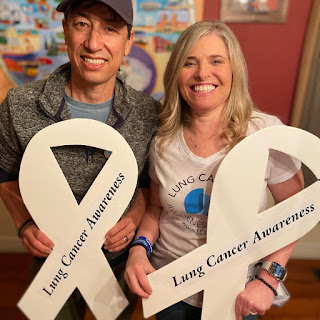Are We Losing Young Researchers?
It’s difficult for the general public to understand how hard
it is for the scientific community to make profound discoveries in the
laboratory. Sure, it’s easy to be
excited when an announcement is made about some game changing breakthrough. But it’s not so easy to see how hard it is to
get there. We hear a lot now about the
genetics of cancer, the genetics of resistance, and the genomics of a patient
that is leading us to “precision medicine”.
It’s bold, and holds so much
promise, exactly what we all hope for.
But of course, the boldest ideas have the longest road to travel. The out-there science is slow to translate
into real-life cures for patients.
As I discussed in my last post, there is a real crisis in
the cancer research field and in science in general, because young scientists
and those who want to be scientists, are finding it difficult to get financial
support. The U.S. must recognize that if there are no young scientists, there
will be no pipeline, there be no innovation in the long term. I believe that
philanthropic support is the answer to help keep these young promising stars in
the field. The funding gap that exists
is not going to be solved by the government, big pharma or venture capital.
Take Dr. Laurence Cooper, from MD Anderson Cancer Center. When I met him last year, he talked about how
fortunate he was “to
stand on the shoulders of giants, men and women who’ve come before me”. He talked about the need for philanthropic
support to help him "think of things that are novel and new and untested.” And through philanthropic support, scientists like Dr.
Cooper can bring young, promising post docs into their laboratories, further the exploration of risky new ideas and mentor the next generation of scientists. As Cooper says “it’s hard and we need backers.” I agree.
So when you read about Dr. Cooper’s blockbuster
immunotherapy licensing deal , and how he is now the CEO of Boston-based Ziopharm,
remember that he was once a young, promising scientist, and this didn’t just
happen overnight. The National Foundation
for Cancer Research has been supporting his work at MD Anderson for many years,
and it’s exciting to see the results of his work. It will only be through continuous funding that young
scientists will stay on the path to being the next Dr. Laurence Cooper 10 or 20 years from
now.
